Creatine is one of the safest and most well-studied supplements on the market but it has one HUGE potential problem:
Some people believe that it causes hair loss.
And, look, I get it:
Your hair is important.
But before you sacrifice the amazing benefits that creatine supplementation can provide to your brain, bones, muscle tissues, and body composition, hear me out:
Give me a few minutes and I’ll debunk the idea that creatine supplementation causes hair loss.
So at the end of the day, you’ll be able to take advantage of this amazing supplement.
DOWNLOAD FREE RESOURCES
Foods to Avoid if you Have Thyroid Problems:
I’ve found that these 10 foods cause the most problems for thyroid patients. Learn which foods you should avoid if you have thyroid disease of any type.
The Complete List of Thyroid Lab tests:
The list includes optimal ranges, normal ranges, and the complete list of tests you need to diagnose and manage thyroid disease correctly!
Studies “Showing” That Creatine Causes Hair Loss
In order to do that I need to go all the way back to the beginning, well not that far back, just to September 2009 when a little study titled (1) “three weeks of creatine monohydrate supplementation affects dihydrotestosterone to testosterone ratio in college-aged rugby players” was published.
All of the ideas and thoughts that creatine may be associated with hair loss lead back to this one study.
And what did it show?
Not much, honestly.
The researchers of this study followed 20 college-aged rugby players that were given a 7-day loading dose of creatine followed by a daily 5-gram dose of creatine for 14 days afterward.
At the end of these 21 days, they found that these rugby players had a higher level of DHT and their conclusion was that creatine may have been the cause of this increase.
There was no mention of hair loss, just the fact that their post-testosterone to DHT ratios were higher than when they started.
So how does this relate to creatine causing hair loss?
The Creatine & Hair Loss Hypothesis Explained
Well, the theory goes that because their DHT levels were increased, they experienced a higher risk of hair loss.
This connection is made because it is well known that DHT stimulation of the hair follicle is the underlying cause of male pattern baldness (2).
DHT has been shown to bind to androgen receptors on certain hair follicles causing them to shrink which, in turn, results in hair loss.
At face value, this theory sounds reasonable but it has one HUGE flaw:
It’s been established that intense exercise all by itself is enough to increase androgenic hormones like testosterone and DHT (3).
So you can’t really attribute the rise of DHT levels in these rugby players to creatine alone.
Furthermore, no studies have replicated the results found in this one study, and there have been plenty of additional studies that have attempted to link creatine supplementation to changes in testosterone levels.
Now does this mean creatine supplementation definitely doesn’t cause hair loss? Not quite.
Worried About Creatine Causing Hair Loss? Here’s Who Should Use it
There’s still a very small chance that creatine supplementation may trigger hair loss in certain susceptible individuals, but there’s not enough clinical data to prove that it does.
Right now the existing body of evidence suggests that there is NO link between creatine use and hair loss.
If hair loss is a big concern for you, here’s how I would think about it:
If you are a woman who is already suffering from male-patterned baldness from a condition like PCOS then it’s probably safest to just avoid creatine for now.
If you are a woman, not suffering from androgenetic alopecia, which is hair loss related to testosterone or androgens, then using creatine would be fine.

Even though androgenetic alopecia is common in both men and women, there are plenty of other causes of hair loss including telogen effluvium and alopecia areata.
These are both common causes of hair loss in women and creatine use would NOT make them worse.
If you are a man, who doesn’t have any issues with hair loss, then using creatine would be fine.
However, if you are a man who is ALREADY suffering from male-patterned baldness then it’s probably best to just avoid creatine altogether even though it’s very unlikely that it will make your hair loss worse.
If you are a man that doesn’t mind some hair loss and would prefer to have the benefits creatine provides, then have at it.
And finally, if you want to learn more about why I think everyone should take creatine (especially thyroid patients) then I would recommend reading this article next.
Recap
- Despite anecdotal reports, there is no direct link between creatine use and hair loss.
- The only plausible connection between creatine use and hair loss is that strength training may increase DHT which may increase hair loss. But this connection is more about the effects of exercise and not the effects of exercise.
- Numerous trials have attempted to connect creatine use to an increase in testosterone and DHT but none have been able to which strongly suggests that creatine does NOT increase androgen levels.
- Even though it appears highly unlikely that creatine causes hair loss it may be best to avoid this supplement if you are genetically susceptible to (or already suffer from) androgenetic alopecia or male pattern baldness.
- Creatine provides incredible health benefits which extend beyond muscle health so avoiding this compound for free of hair loss is mostly unfounded.
- The majority of people can use creatine to obtain these benefits without concern for hair loss.
Now I want to hear from you:
Were you aware of the potential connection between creatine and hair loss?
Have you taken creatine in the past? Did you feel that it impacted your hair in any way?
Are you planning on using creatine after this reading? Why or why not?
Leave your questions below!
Scientific References
#1. pubmed.ncbi.nlm.nih.gov/19741313/
#2. ncbi.nlm.nih.gov/books/NBK278957/
#3. ncbi.nlm.nih.gov/pmc/articles/PMC3040039/
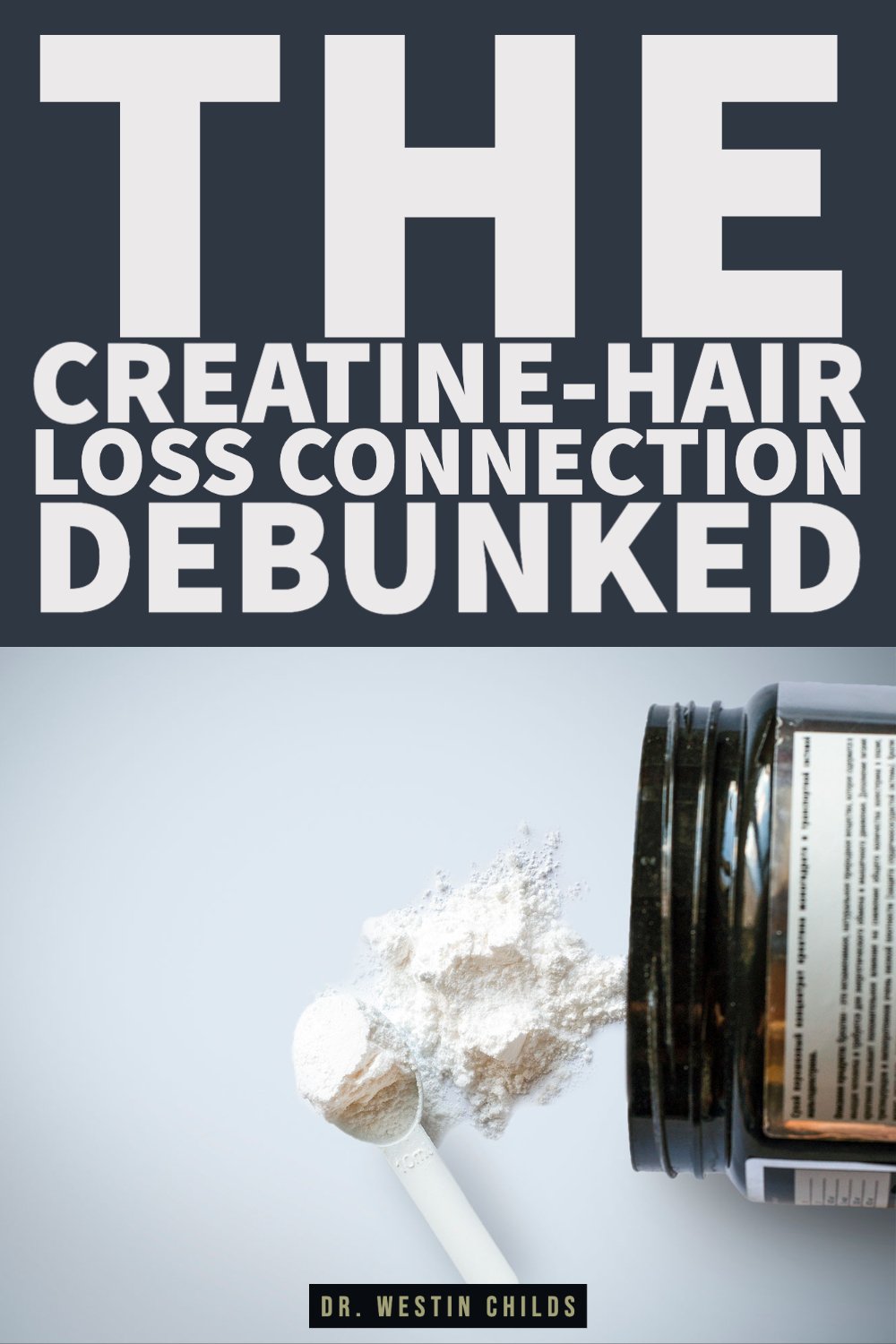
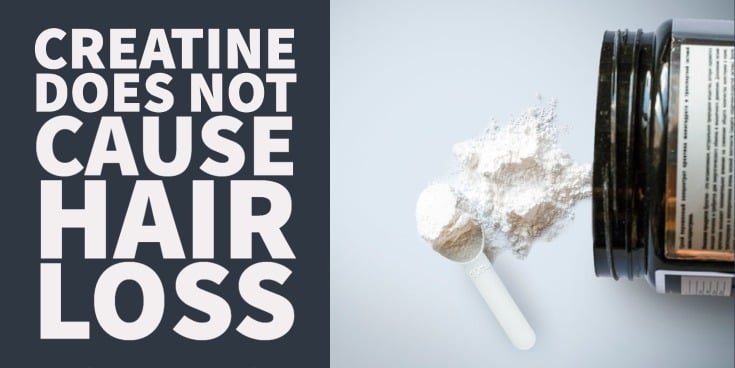


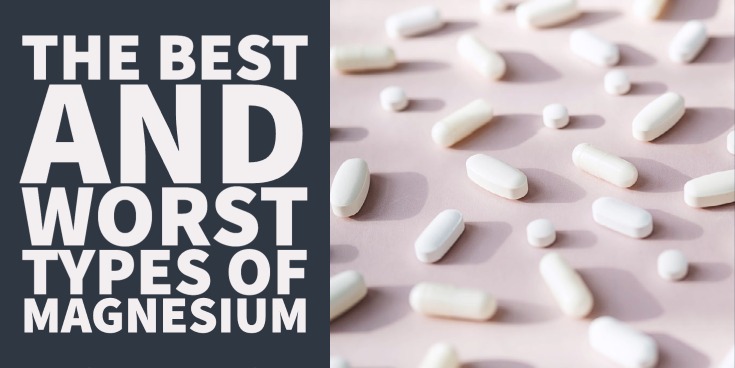

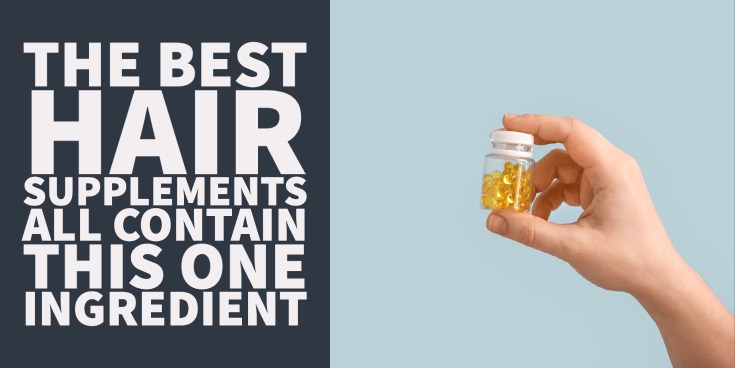
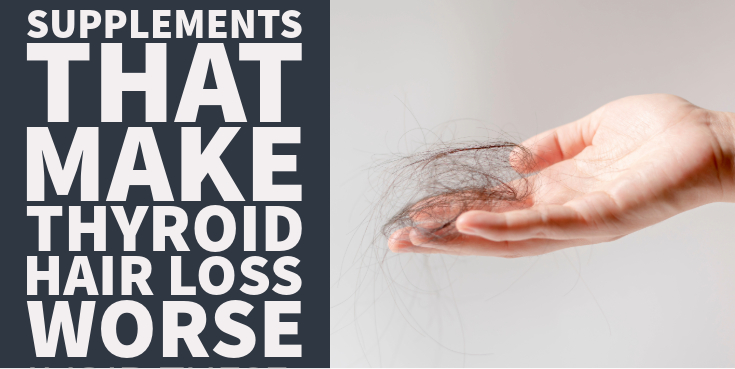


Hie, I have been thinking about starting your supplements but a little about myself.
I had a total thyroidectomy in 2008 due to papillary carcinoma. Everything was ok. but since I turned 30 , I have been having Normal fluctuations. PS…I am am international Flight attendant so mostly flying around the world between time zones etc. The problem is.. In March I was grounded due to FT3 levels too low. They suspended my license.That time I was on 150mcg..weight 62kgs and height 160cm . dose was increased to 200 mcg levothyroxine. by 2n July I was hyper..so I had to be grounded again.I took it upon myself to reduce the dosage to 100 so that I can get back to work. Dr said it dropped so fast she didn’t like it. now I have gone back to Hypo with FT3 levels at 2.81. I have to keep this normal and stop the fluctuations. what I can do. I am on the verge of losing my job. Which supplements can I take To help. I exercise alot. but I can’t tolerate heat, I easily get palpitations. I don’t smoke but drink a glass or two everyday..red wine. I always have water retention and irregular menses. My normal weight because of exercise is 58kgs. Now I have reached 62.6 kgs. I must say I have been stressed a lot. and it’s very hot in UAE hence I can’t handle heat. lots of headaches, fatigue and body aches despite being hyper or hypo. All this got worse after I turned 30.
Hi Elizabeth,
These would be the best supplements given that information: https://www.restartmed.com/product/thyroidectomy-rai-bundle/